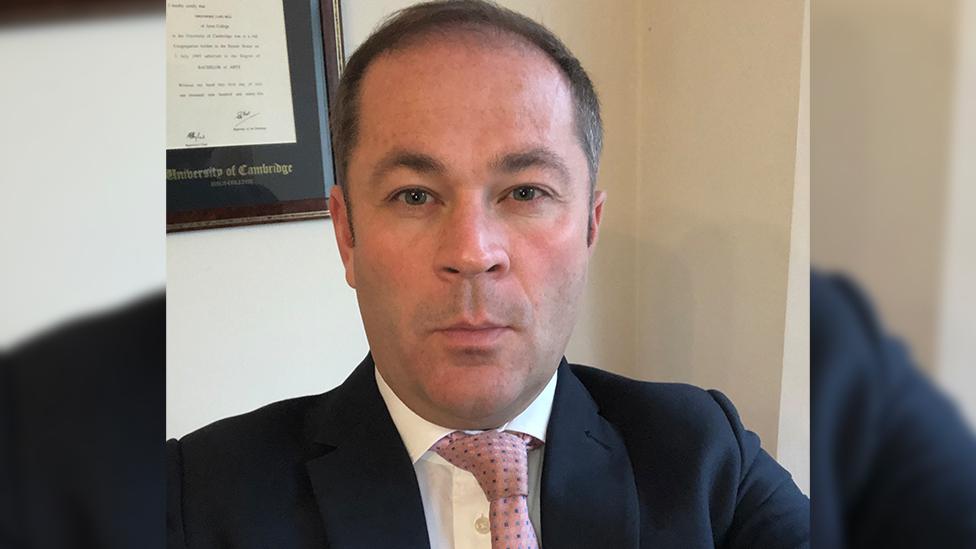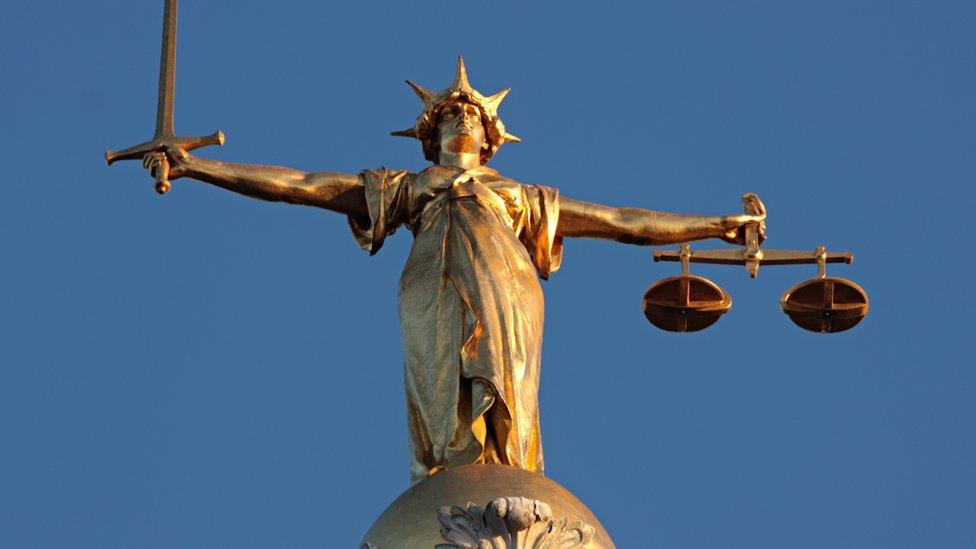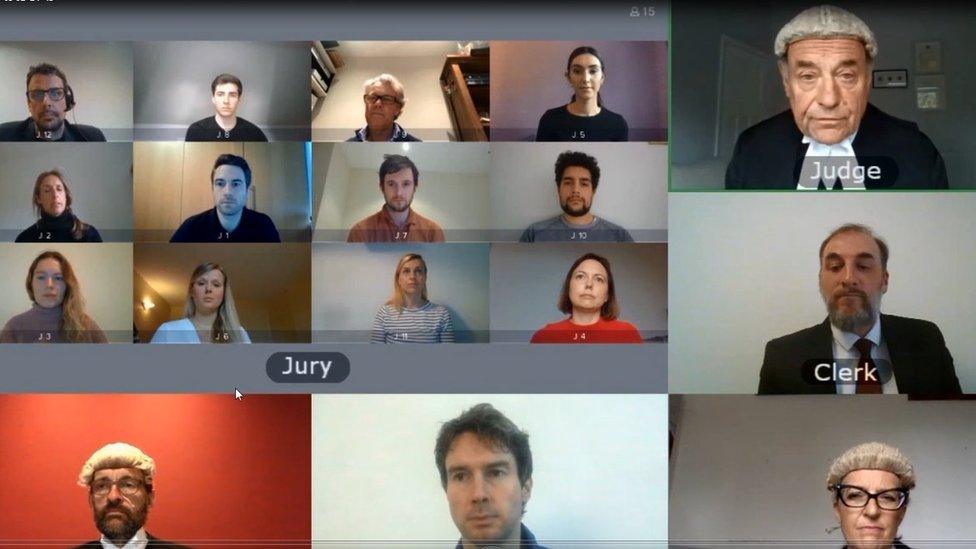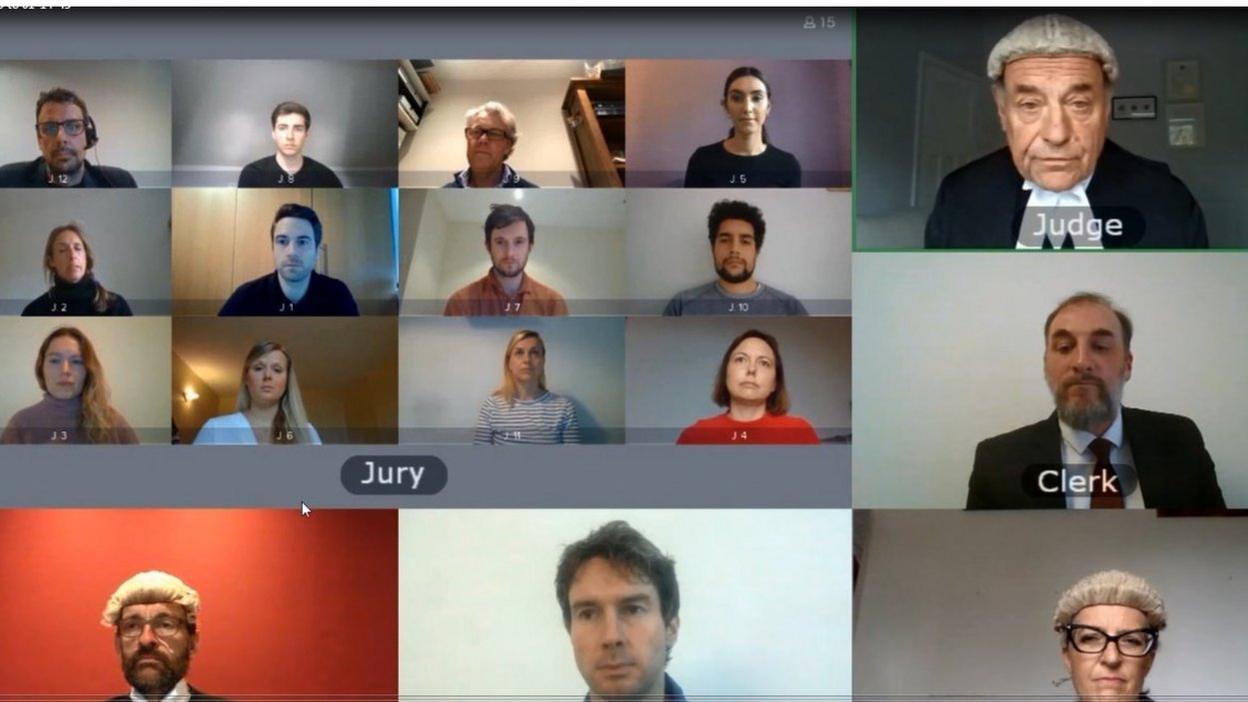Coronavirus: Courts must resume to deal with 'backlog of cases'
- Published

Barrister Christopher Rees said talks were under way to restart football matches when the justice system was not up and running yet
Victims are being left in "distressing limbo" due to a growing backlog of cases during the coronavirus pandemic, a top Cardiff barrister has warned.
Jury trials across the UK were halted in March due to the virus.
Christopher Rees said there was talk of measures to resume Premiership football when the UK still did not have a "functioning justice system".
The Ministry of Justice said it was working to restart trials "as soon as possible".
The Lord Chief Justice Lord Burnett has said radical measures will be needed to restart trials. during the coronavirus restrictions.
This could include turning buildings like university lecture theatre halls into court rooms, and having fewer jurors, a measure used in World War Two.
By the end of 2019, the number of outstanding cases in England and Wales had reached 37,434, official figures show., external

Mr Rees said some newly qualified criminal lawyers did not qualify for the furlough scheme and had been told to apply for Universal Credit
Mr Rees, a representative of the Criminal Bar Association in Wales, said the backlog was caused by years of UK government "underfunding".
Mr Rees, head of Apex Chambers in Cardiff, said with seven or eight trials held a day at Cardiff Crown Court before hearings were suspended, the backlog was "growing daily" and urgent action was needed.
"That's a lot of victims, a lot of witnesses, a lot of defendants, a lot of families and those involved, all waiting to find out about cases," he told BBC Wales' Sunday Supplement programme.
"We're nearly up to 300,000 people just waiting to find out what's going on with the cases they are involved in, this is the equivalent to a city the size of Swansea. That's quite a frightening prospect."
Mr Rees said the limbo would be "extremely distressing" for victims and their families, especially in cases involving sexual offences, offences against children and murder.

Justice has conducted mock virtual trials to test their viability
Jury trials involve at least 20 people, but often considerably more, in one relatively confined courtroom.
Currently, 12 jurors sit in trials in England, Wales and Northern Ireland, and 15 in Scotland.
Mr Rees said while courts were sitting virtually, streaming some hearings via video link from prisons and custody suits, there needed to be more urgency on how to adapt to get trials back up and running.
He said there had been talk of Premiership football returning in June, while England and Wales did not have a "functioning justice system".
Many of the UKs Crown courts are old Victorian buildings and are not suitable for social distancing during trials, with jury boxes traditionally being very small.
Mr Rees said even in older courts one or two court rooms could accommodate social distancing for jurors in order for trials to resume, but it would mean it would take "some time" to work through the backlog.
The Ministry of Justice, responsible for the criminal justice system in England and Wales, said all new jury trials had been suspended to "help protect the public".
A working group is meeting weekly to consider how and when it would be safe to restart trails, a spokesman said.
"We are working closely with the judiciary and others to restart trials as soon as possible, and a justice committee - which includes the Criminal Bar Association - is currently assessing options," a spokesman said.
"The public can be confident that we are doing everything possible to keep courts running, through a significant increase in remote hearings and 160 priority courts still operating across England and Wales."
- Published1 May 2020

- Published30 April 2020
